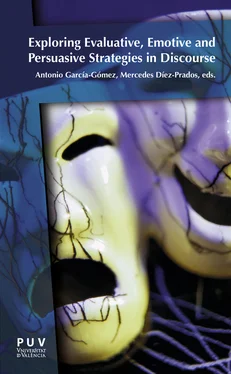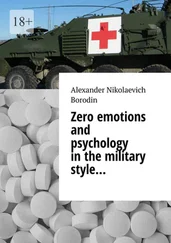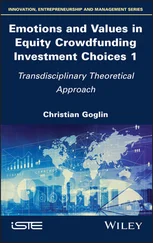Exploring Evaluative, Emotive
and Persuasive Strategies in Discourse

Exploring Evaluative, Emotive and
Persuasive Strategies in Discourse
Editors:
ANTONIO GARCÍA-GÓMEZ & MERCEDES DÍEZ-PRADOS
UNIVERSITAT DE VALÈNCIA
2018

ENGLISH IN THE WORLD SERIES
GENERAL EDITOR
Antonia Sánchez Macarro
Universitat de València, Spain
ADVISORY EDITORIAL BOARD
Professor Enrique Bernárdez
Universidad Complutense de Madrid, Spain
Professor Anne Burns
Macquarie University, Sydney, Australia
Professor Angela Downing
Universidad Complutense de Madrid, Spain
Dr Martin Hewings
University of Birmingham, Great Britain
Professor Ken Hyland
University of East Anglia, Norwich, Great Britain
Professor James Lantolf
Penn State University, Pennsylvania, USA
Professor Michael McCarthy
University of Nottingham, Great Britain
Professor Eija Ventola
University of Helsinki, Findland
© Antonio García-Gómez y Mercedes Díez-Prados
© 2018 by the Universitat de València
Design and typeset: Celso Hdez. de la Figuera
Cover design by Pere Fuster (Borràs i Talens Assessors SL)
ISBN: 978-84-9134-322-6

CONTENTS
Notes on Contributors
Exploring Evaluative, Emotive and Persuasive Strategies in Discourse: Introductory Remarks
Antonio García-Gómez & Mercedes Díez-Prados
PART 1 A CROSS-LINGUISTIC APPROACH
1Comparing Engagement in Non-fictional Texts: An English-Spanish Contrastive Study of Argumentative and Expository Texts from a Parallel Corpus
Marta Carretero
2With Two Colours: Multimodal Persuasion in Socio-political Posters
Silvia Molina-Plaza
3 Sentimiento atlético: Persuasion and Emotion at Play
María José García-Vizcaíno
4When It Takes Two to Scare One: Managing Fear Appeals in Triadic Dialogues in Health Care Settings
Bruno Echauri Galván
PART 2 A FUNCTIONAL AND SOCIO-COGNITIVE APPROACH
5Delving into the Psychotic Mind of Norma(n) Bates: Evaluation and the Authorial Voice in Narrative Fiction
Joaquín Primo-Pacheco
6Romantic Homosexual Male Construction of Identity in Love Song Lyrics
Ionut Alecsandru
7Linguistic Choices in Persuasive Discourse: Preliminary Analysis of Self-reference, Positive Polarity and Sentence Construction
Rosa Muñoz Luna
8Digital Storytelling and the Art of the Emotional Appeal: the Case of Despite My Fears
Isabel Alonso-Belmonte

Notes on Contributors
IONUT ALECSANDRUreceived his Bachelors of Arts in English Studies in 2016, and his Masters in TEFL in 2017, both from the Universidad de Alcalá de Henares, Madrid, Spain. Ionut is passionate about the study of the English language, gender studies as well as argumentation and persuasion strategies. He currently works as an ESL teacher in Alcalá de Henares.
ISABEL ALONSO BELMONTEis an Associate Professor at the University Autónoma de Madrid (Spain). Her research concerns media discourse analysis, multimodality and the description of the discourse structure across genres. She has many publications in edited books and in different prestigious journals such as Text & Talk, Journal of Pragmatics, Language & Communication and Discourse & Communication .
MARTA BEGOÑA CARRETERO LAPYEREis Associate Professor of English linguistics at the Universidad Complutense, Madrid, where she lectures in semantics, pragmatics and functional linguistics. She authors over 50 publications, mainly in the areas of modality and evidentiality, in Spanish and international journals. Part of her research concentrates on theoretical and conceptual issues, while other works are more descriptive, covering English-Spanish contrastive analyses. Most of her research is based on authentic corpora. She is co-editor of a number of books, such as English Modality: Core, Periphery and Evidentiality (2013), Evidentiality Revisited (2017) and Evidentiality and Modality in European Languages (2017).
MERCEDES DÍEZ PRADOSis Associate Professor at Alcalá University (Spain), where she has taught since 1993 diverse subjects such discourse analysis, Systemic Function Linguistics, and, of late, argumentation and persuasion in English and their translation into Spanish. This latter subjects have been informed by the research project she directs entitled Emotion and Language ‘at Work’: The Discursive Emotive/Evaluative Function in Different Texts and Contexts within the Corporate and Institutional Work: Project Persuasion (Reference FFI2013-47792-C2-2P), granted by the Spanish Ministry of Economy and Competitiveness (Ministerio de Economía y Competitividad). Her latest publications are “The evaluative function of cohesive devices in three political texts” (De Gruyter Mouton, 2013, co-authored with Ana Belén Cabrejas-Peñuelas), “Positive self-evaluation versus negative other-evaluation in the political genre of pre-election debates” ( Discourse & Society , 2014), “Enforcing gender in adolescents via directives in teenzines : A contrastive view in English and Spanish” (Publicacions de la Universitat de València, 2014), “The use of metaphor and evaluation as discourse strategies in pre-electoral debates: Just about winning votes” (John Benjamins Publishing Co., 2016), “The Internet as a pedagogical tool in the writing process: A research-based approach” (Springer, 2018, co-authored with Ana Belén Cabrejas-Peñuelas), “Abstract nouns as metadiscursive shells in academic discourse” (Revista Caplletra, 2018) and “Engagement in business persuasive discourse: The elevator pitch ” (John Benjamins, under review).
BRUNO ECHAURI GALVÁNis a lecturer in the Modern Philology Department at the University of Alcalá. He holds an MA and Ph.D. in Translation Studies. His research interests encompass different aspects of this field such as translation and interpreting in mental health and health care settings, or intersemiotic translation.
ANTONIO GARCÍA-GÓMEZis an Associate Professor of Linguistics at the University of Alcalá de Henares, Madrid (Spain) where he teaches discourse analysis and functional linguistics. He holds a Ph.D. in Linguistics from Universidad Complutense de Madrid. His expertise lies mainly in discourse analysis and discursive psychology. Professor García-Gómez’s main and most developed research interest is conflict talk. A main strand of his research has focused on the pragma-discursive strategies employed in conflictual episodes in talk show interaction. Other current research interests include gender, identity and language use in new media. He has published numerous articles and authored two books. Professor García-Gómez was an Honorary Research Fellow at University College London (Department of Psychology), and presents regularly at conferences across Spain and Europe. His latest publications are “Televised entrepreneurial discourse: Conversational structure and compliance gaining strategies” ( Studies in Media and Communication , 2017) and “ Dragons’ Den: Enacting Persuasion in Reality Television ” ( Discourse, Context and Media, forthcoming 2018).
Читать дальше















